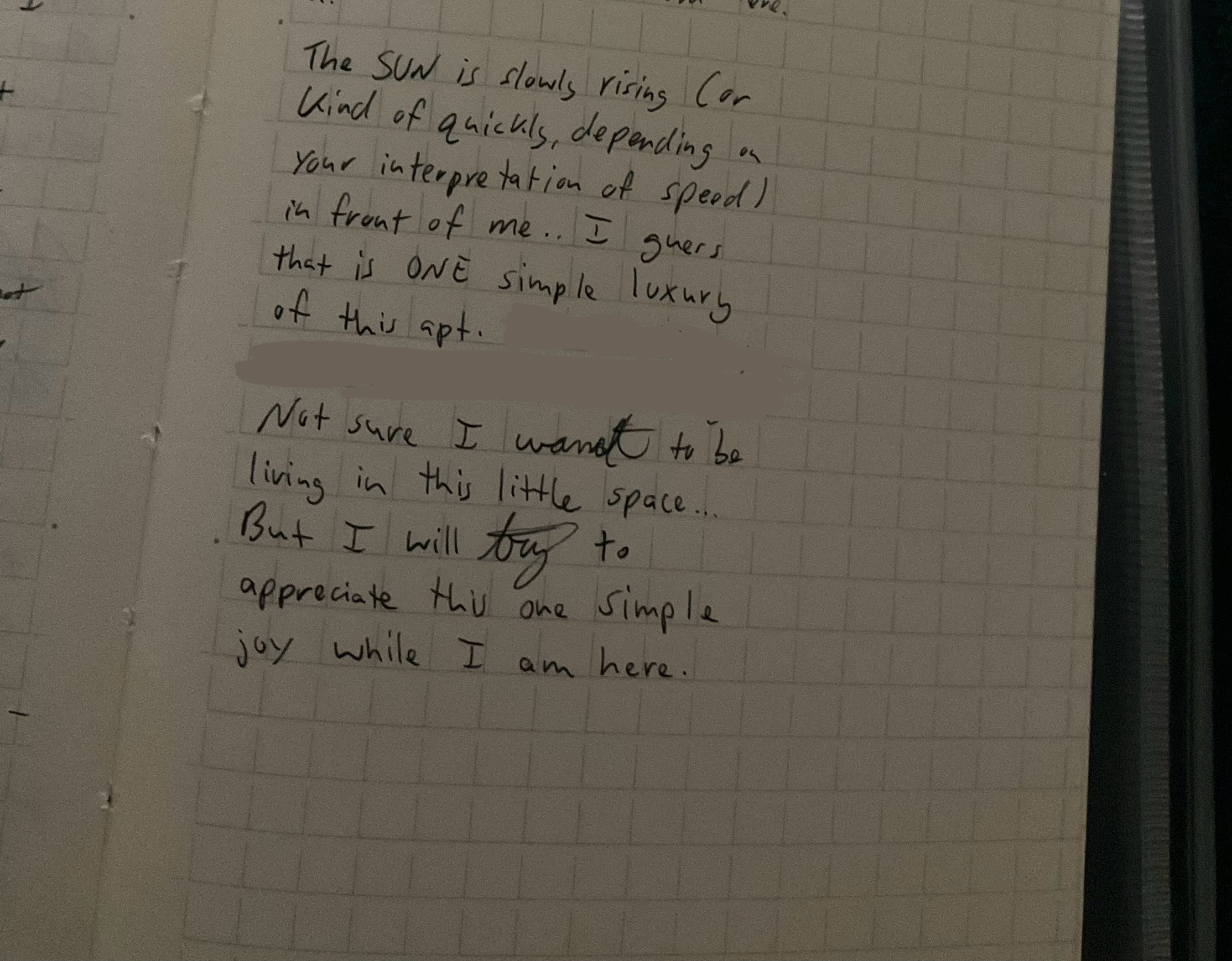Journaling thought loops and problem-focused coping.
When I was an undergraduate, I took a course in health psychology. It was one of my favorite courses, taught by one of my favorite professors. She explained the difference between emotion- and problem-focused coping. Emotion-focused coping is managing the feelings associated with an issue, while problem-focused coping involves directly facing the issue, using a strategy or plan to solve it. When we feel angry, we might expressively journal, write unsent letters, grit our teeth, yell, stomp, or even throw something (but hopefully not at someone). That’s emotional. With a problem-focused strategy, we might identify the source of the anger and plan methods to counteract it (e.g., confront someone who said something unfair or unkind). Like most people, I tend to use a mix of both.
When I was a teenager, I was very much a small ball of anger and engaged in maladaptive, emotion-focused coping. I lost count of the times I threw my cellphone after having what seemed like the same argument with the same person (my ex-partner). I was in a loop — a thought loop, a relationship loop, a hell loop. While I am not the same angry teenager, the expressive, emotional anger lingers in me on difficult days, though my coping style has shifted to more problem-focused coping. My journal is my best tool for working through thorny problems and beginning to plan ways to resolve them, but I still find myself in certain loops, demonstrating the need for pause.
June, for me, was about using intentional pause.
When I ended my reflection for last month, I wanted the next month to feel more positive. I wanted it to be about joy and feeling positive emotions, reaching new insights. But I realized I instead needed to focus on using intentional pause. I need to learn to be (at least a little) more patient with others and with myself.
I am working to better understand myself and those around me, those who are a part of my daily interactions. I am working to feel more empathetic and compassionate and less quick to judge people. Also, I am consciously acknowledging we all have to work through issues in our own ways; we all have unique coping methods.
To give myself the necessary time for understanding, June has been about pausing for me. I am trying to see beneath surface-level annoyances to deeper-level concerns and working to understand the connections I share with my friends, colleagues, family, and partner. I am intentionally resisting the impulse to express anger and choosing curiosity and compassion instead, learning to question instead of accuse.
And it’s all a very slow, effortful change.
Habit loops in context
I am a person of habit. But instead of habit stacking, which I aspire to, I often find myself in habit loops (i.e., hell loops). For example, I have little issue with committing to a daily meditation practice, but it may take me years to realize the way I meditated did next to nothing for my focus or mental health. I’ve run around the same speed for the past several years, but I run regularly. My running speed is no problem in and of itself, but to make meaningful change, I am learning to change my behavior and environment. I cannot sit in the same cyclical patterns and expect change.


I’ve been journaling for the past five years, and I love writing in my journal. However, while journaling may help me notice and identify issues, I may not be able to solve some of my issues with journaling alone. In addition to journaling, prioritizing my sleep health, and running, I started regularly seeing a therapist. We meet every one-to-two months to challenge my anxious thoughts, among other issues. But is seeing a therapist really the solution?
In Rachel Aviv’s book, Strangers to Ourselves: Unsettled Minds and the Stories That Make Us, she emphasizes the importance of context in mental illness. She challenges medications as a solution to maintaining mental health.
“If medications are the central question—to take or not—then one has permission again to ignore the context, the kinds of social worlds that create and perpetuate disabilities. One explanation was still holding too much power.” (p. 213)
While I’m not on any prescribed medication, I don’t think therapy will solve all of my problems, either. And this is no rag on my therapist. She’s great. But there are socioenvironmental contexts that she cannot change for me. As compared to other places I’ve lived, my current apartment building is often loud. My current neighborhood is littered, over-policed, and, in my opinion, massively overpriced. I am grateful to have a place of my own, but this is one example of the problems that no amount of therapy nor journaling can resolve.
I am working on changing my environment. In the meantime, I’ve been having fun with several articles on writing, note-taking, and journaling. These are a few things that help me feel grounded, even within other frustrating contexts.
- Substack: I wrote an article about writing with dictation. This is one strategy that helps me get writing done. With simple transcription workflows, this has been a useful and fun drafting method.
- Medium: Note-taking and journaling are two of my favorite activities. But using too many tools can complicate the process. I discuss my current approach to note-taking minimalism using a central analog space (small binder, like Plotter) and digital space (note-taking app, like Craft Docs).
- Instagram: I recently started an IG page, notebook.paper.stories. I post photos of my note-taking toolset and process. Check out this photo about keeping a commonplace book and the difficulty of finding time to write.
Notes
- I recommend reading Strangers to Ourselves: Unsettled Minds and the Stories That Make Us by Rachel Aviv. It’s a captivating book of several interesting stories on mental illness and the context in which mental illness may be developed, managed, and understood.
- I recently discovered a cool blog on journaling. This article is about journaling in loops.
- If you found value in this writing and want to say thanks, here are a few ways to support the blog:
- Chat with me directly and send feedback, questions, or article requests to emily.c.hokett@gmail.com.
- Find more of my writing on Substack, Medium and here at emilyhokett.blog.
- Buy me a tea🍵 to support the maintenance of the blog.
Take care. Talk soon.